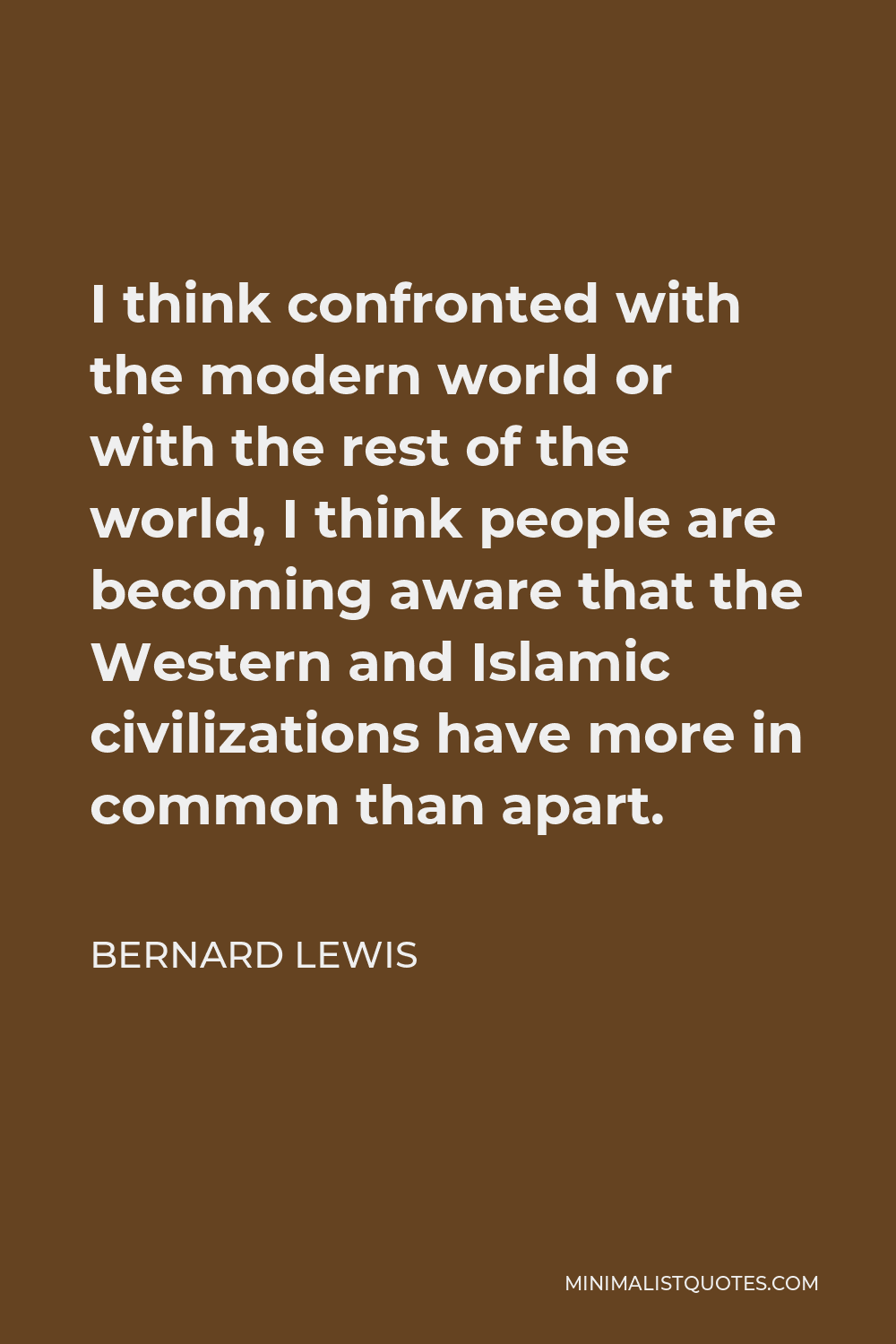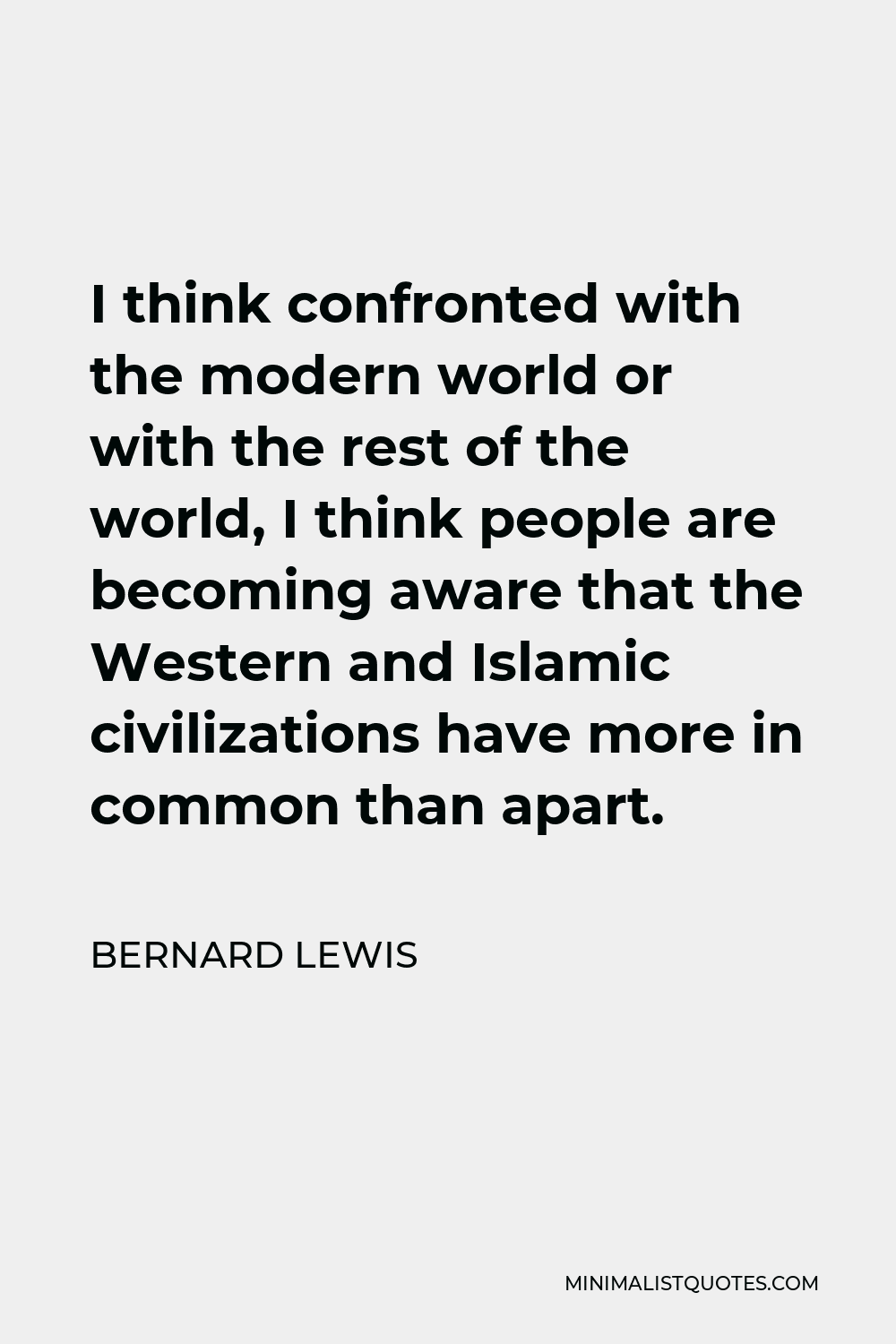Muslims are very keenly aware of the history of their community, of the history of that relationship between their community and the rest of the world. And they have had this all through the centuries and are very much heightened by modern communications.
BERNARD LEWISI think confronted with the modern world or with the rest of the world, I think people are becoming aware that the Western and Islamic civilizations have more in common than apart.
More Bernard Lewis Quotes
-





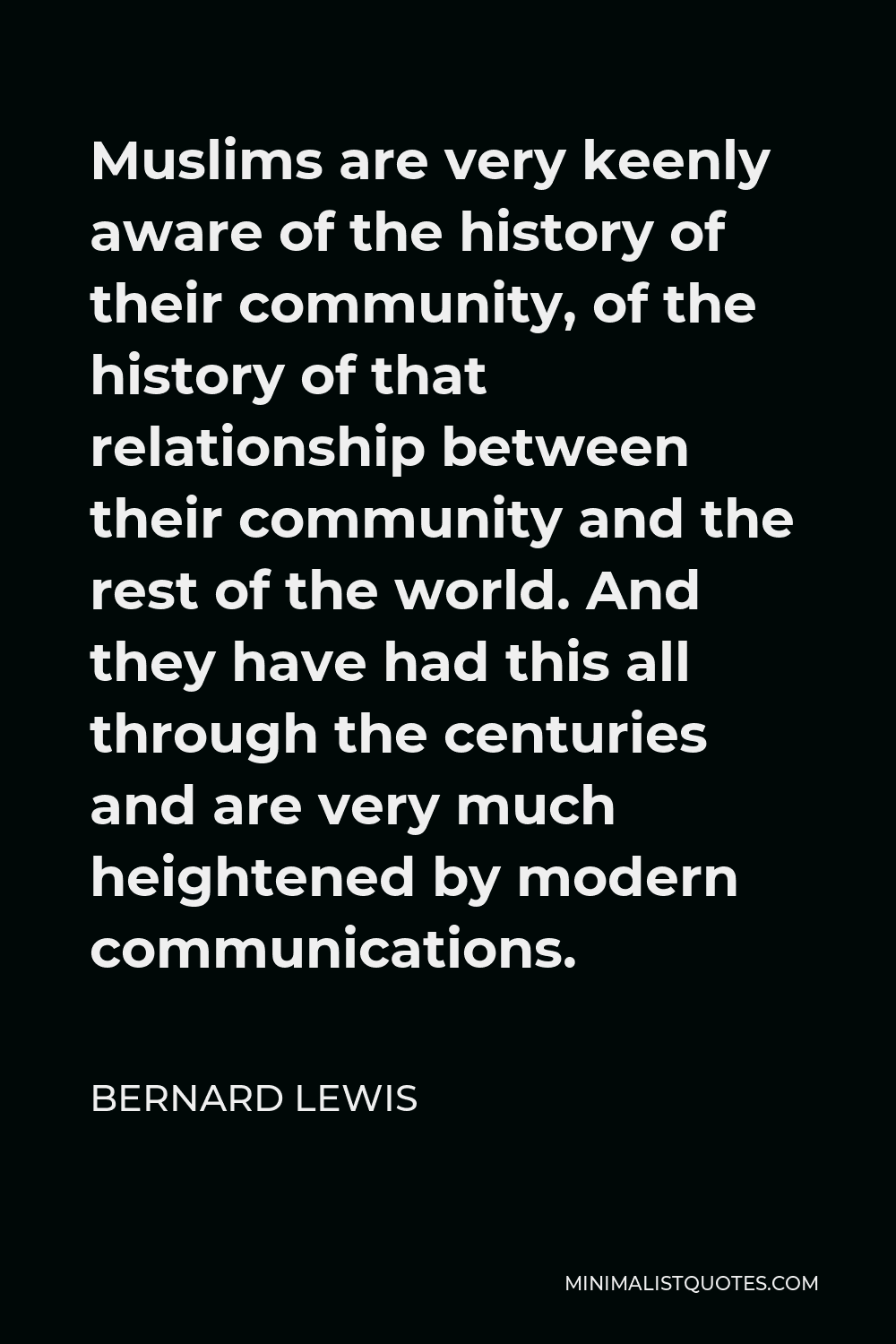
-





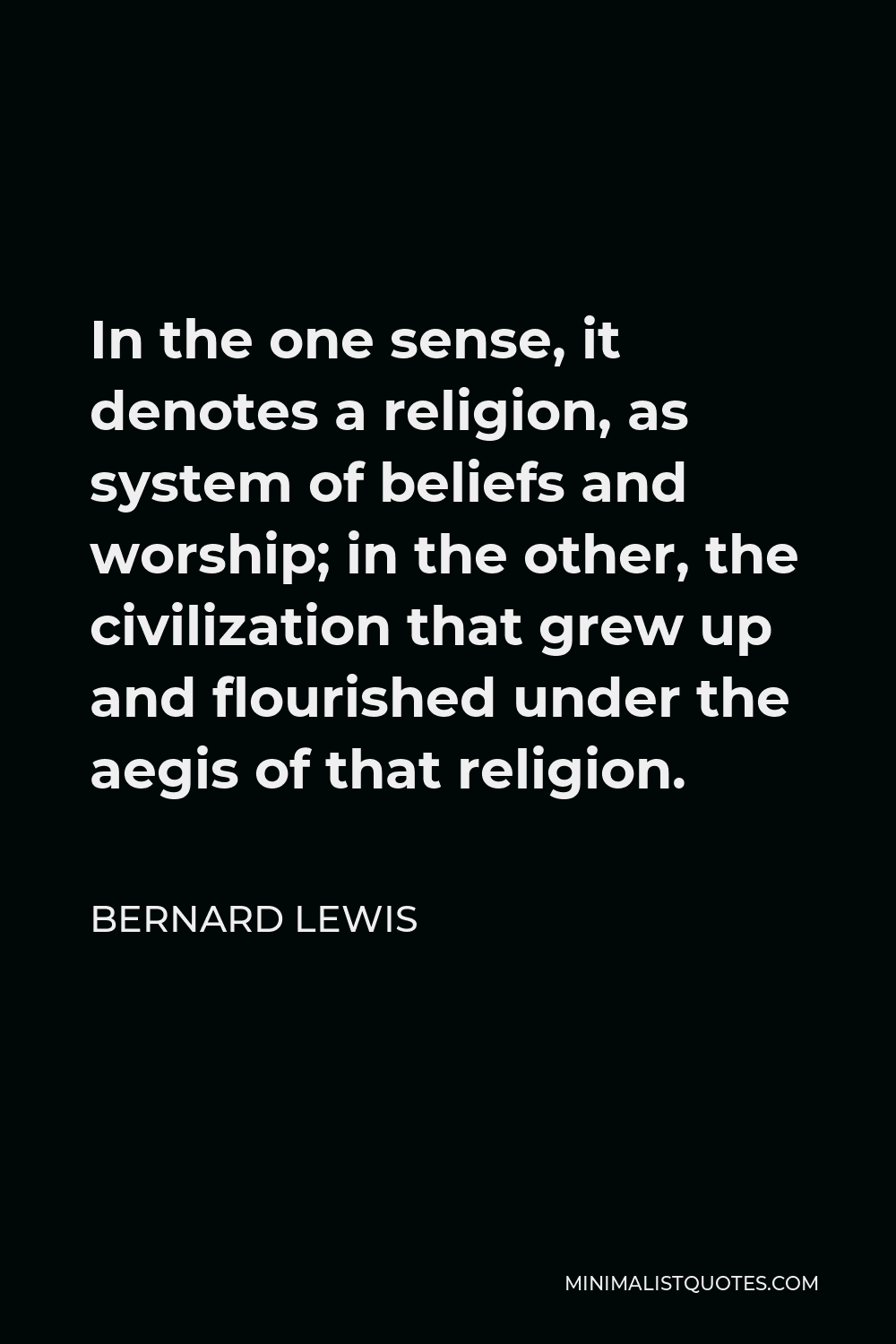
In the one sense, it denotes a religion, as system of beliefs and worship; in the other, the civilization that grew up and flourished under the aegis of that religion.
BERNARD LEWIS -





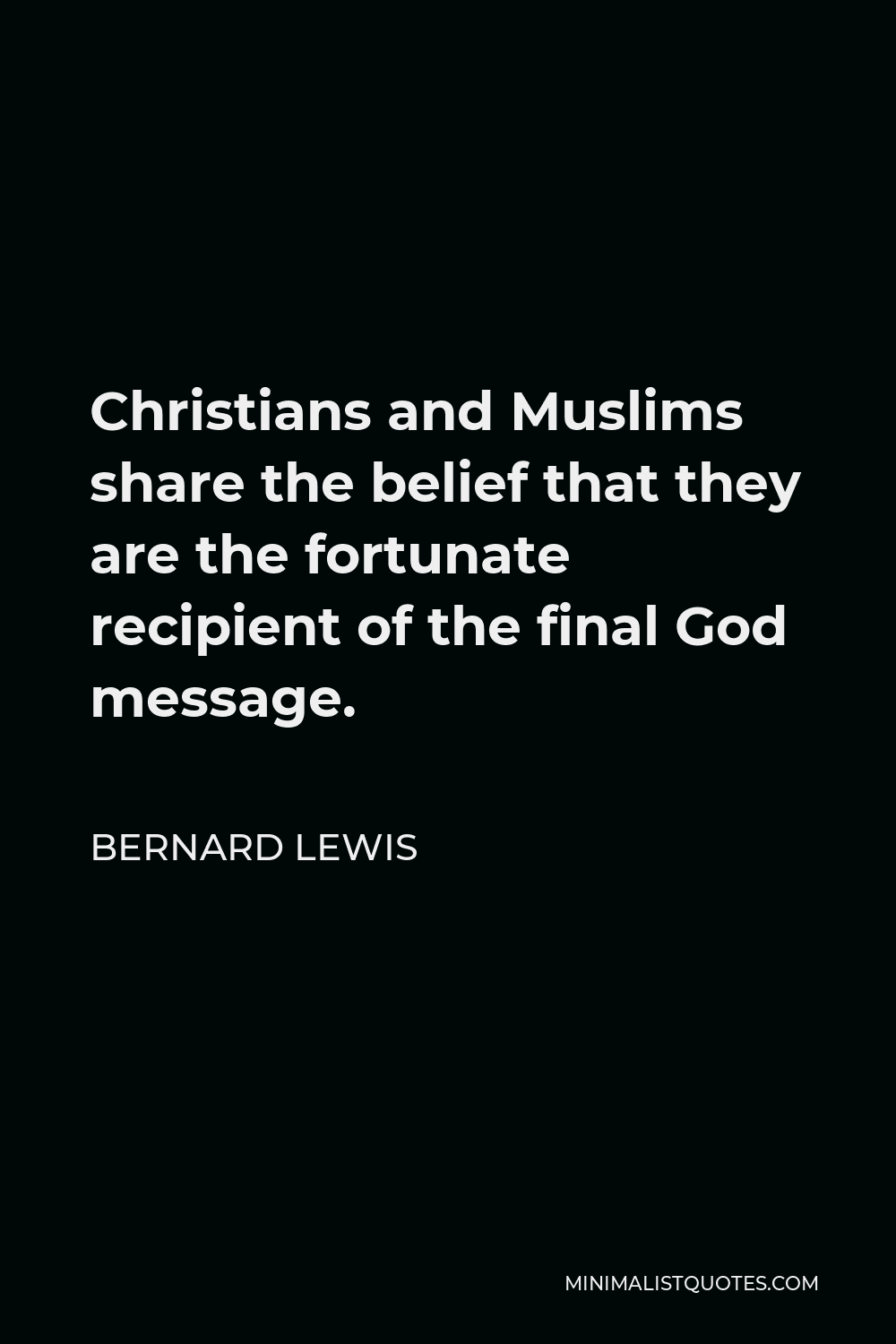
Christians and Muslims share the belief that they are the fortunate recipient of the final God message.
BERNARD LEWIS -





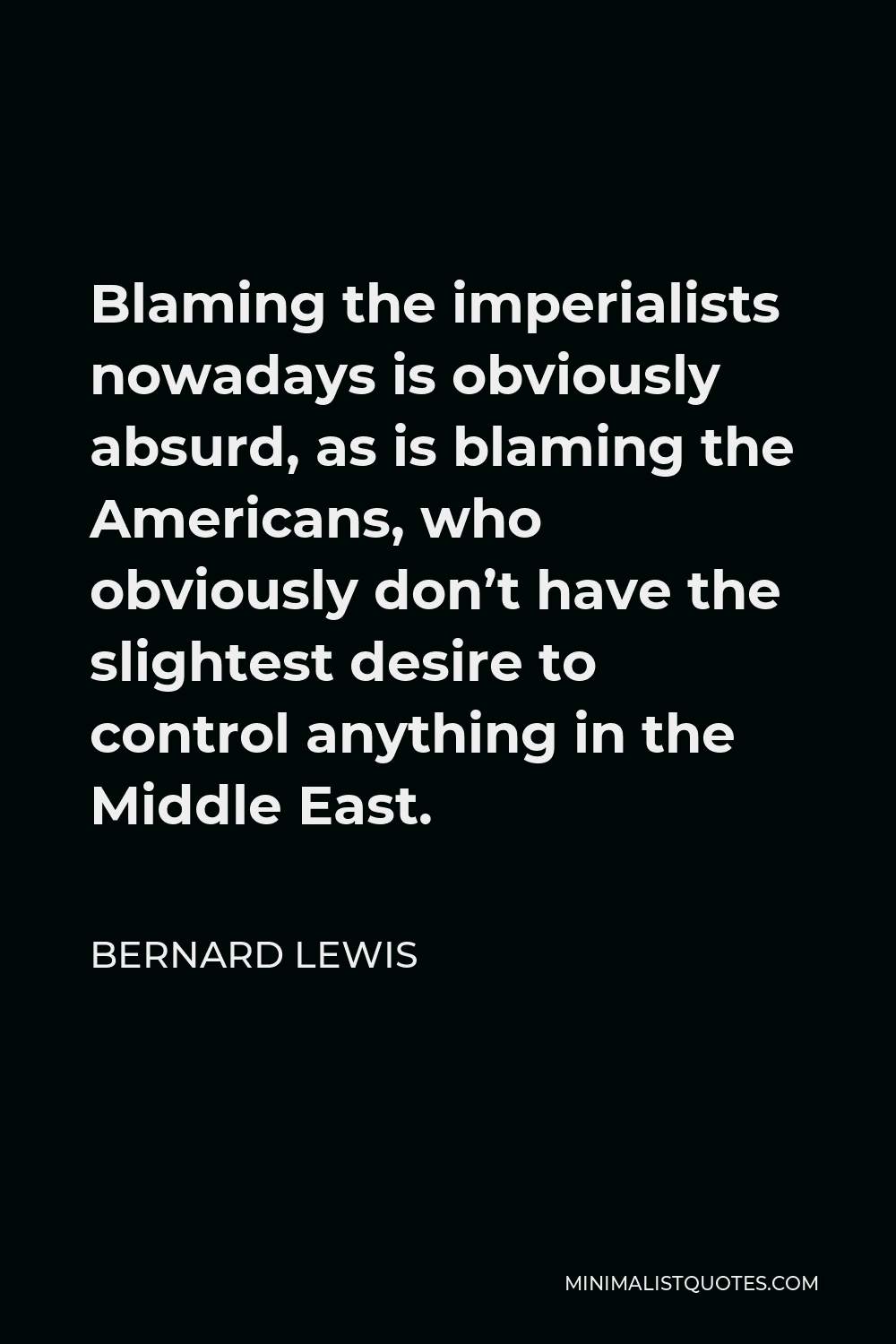
Blaming the imperialists nowadays is obviously absurd, as is blaming the Americans, who obviously don’t have the slightest desire to control anything in the Middle East.
BERNARD LEWIS -





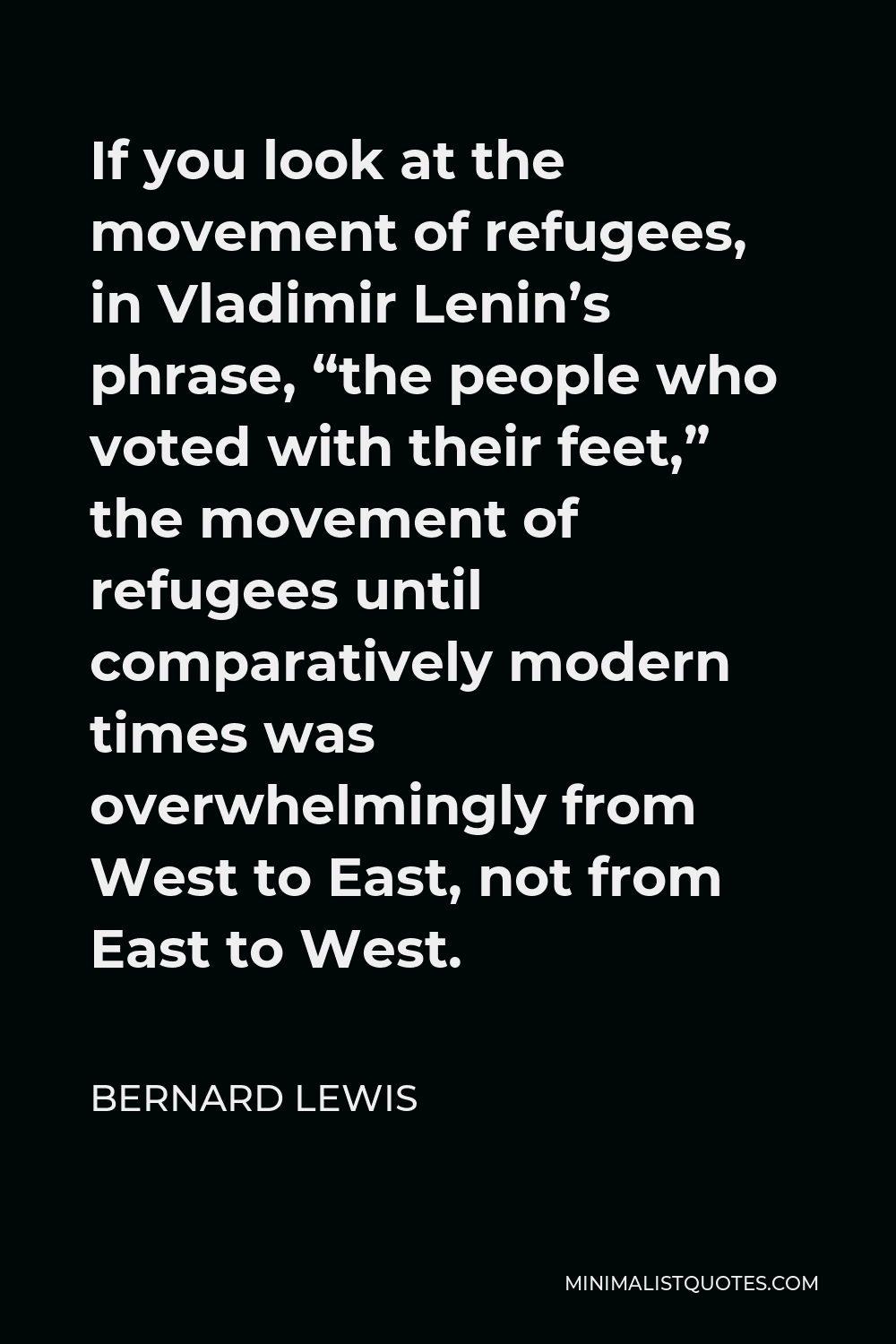
If you look at the movement of refugees, in Vladimir Lenin’s phrase, “the people who voted with their feet,” the movement of refugees until comparatively modern times was overwhelmingly from West to East, not from East to West.
BERNARD LEWIS -





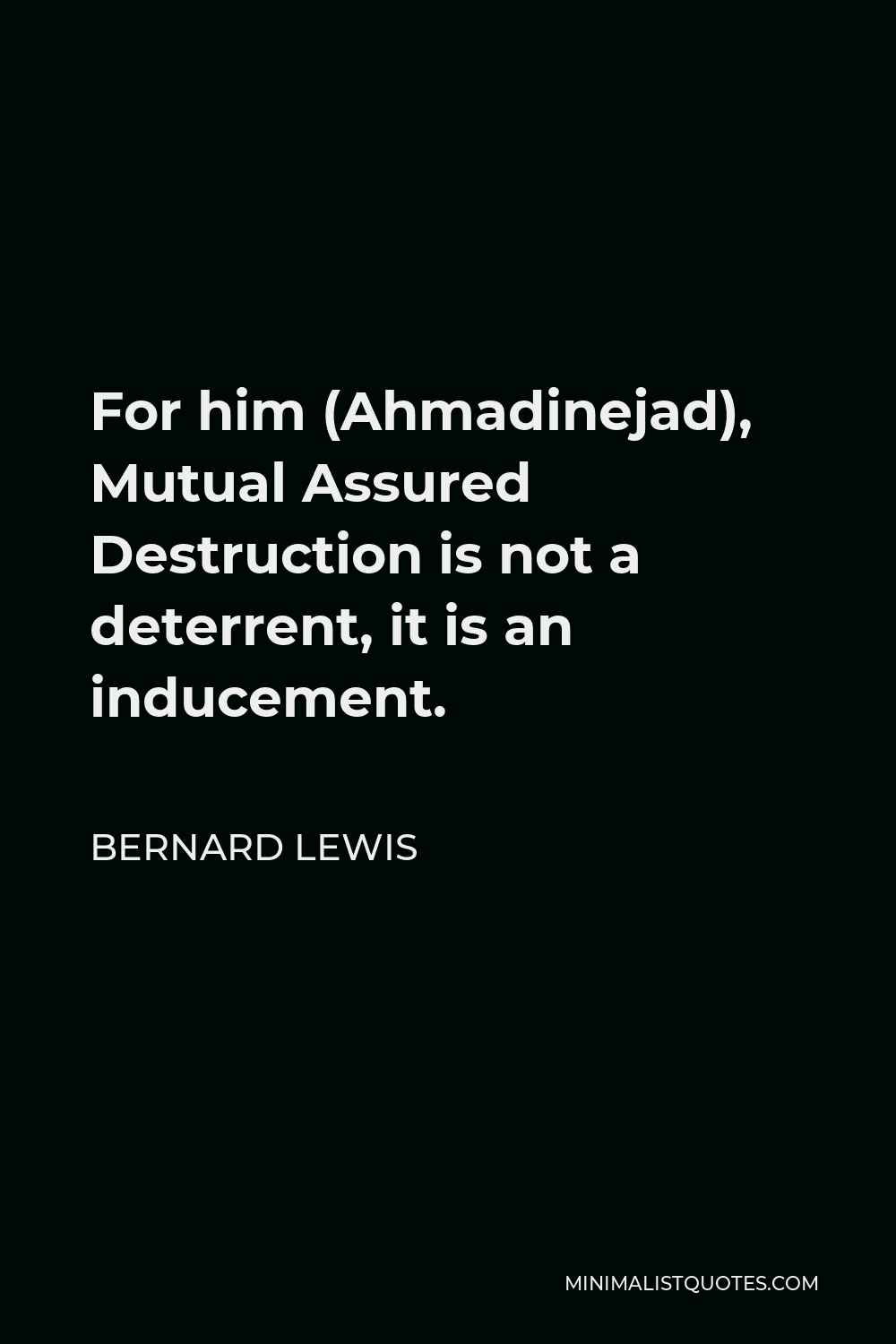
For him (Ahmadinejad), Mutual Assured Destruction is not a deterrent, it is an inducement.
BERNARD LEWIS -





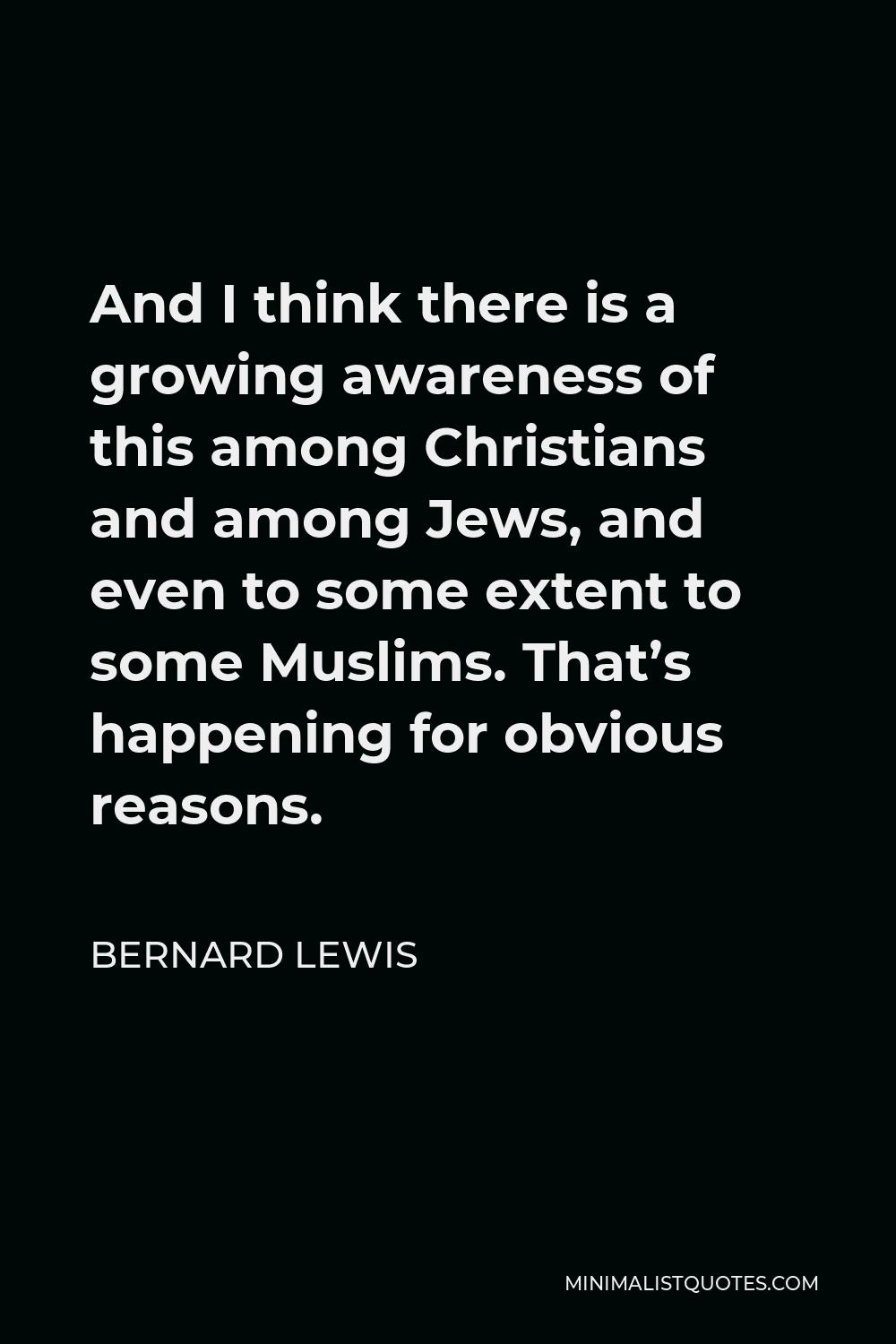
And I think there is a growing awareness of this among Christians and among Jews, and even to some extent to some Muslims. That’s happening for obvious reasons.
BERNARD LEWIS -





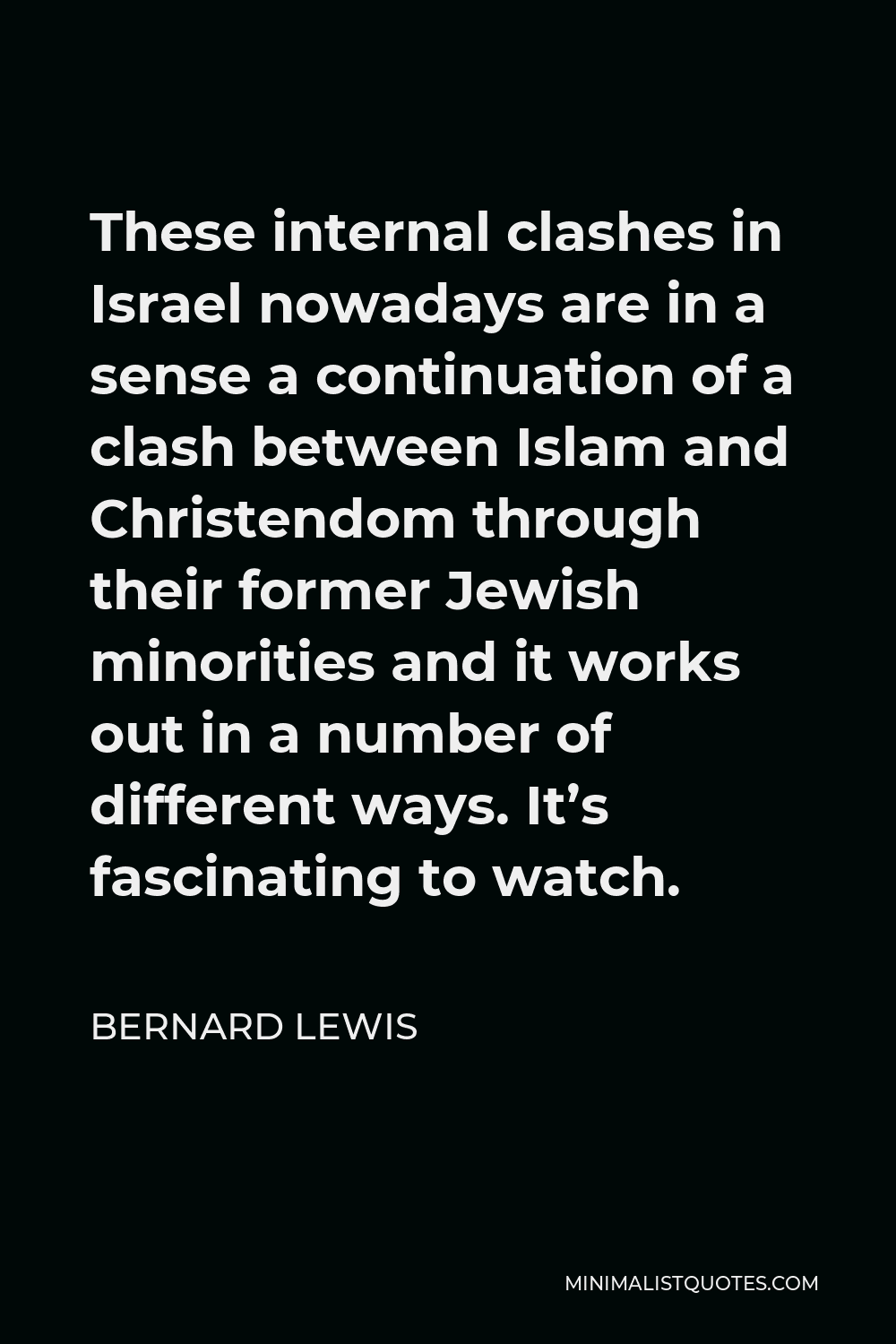
These internal clashes in Israel nowadays are in a sense a continuation of a clash between Islam and Christendom through their former Jewish minorities and it works out in a number of different ways. It’s fascinating to watch.
BERNARD LEWIS -





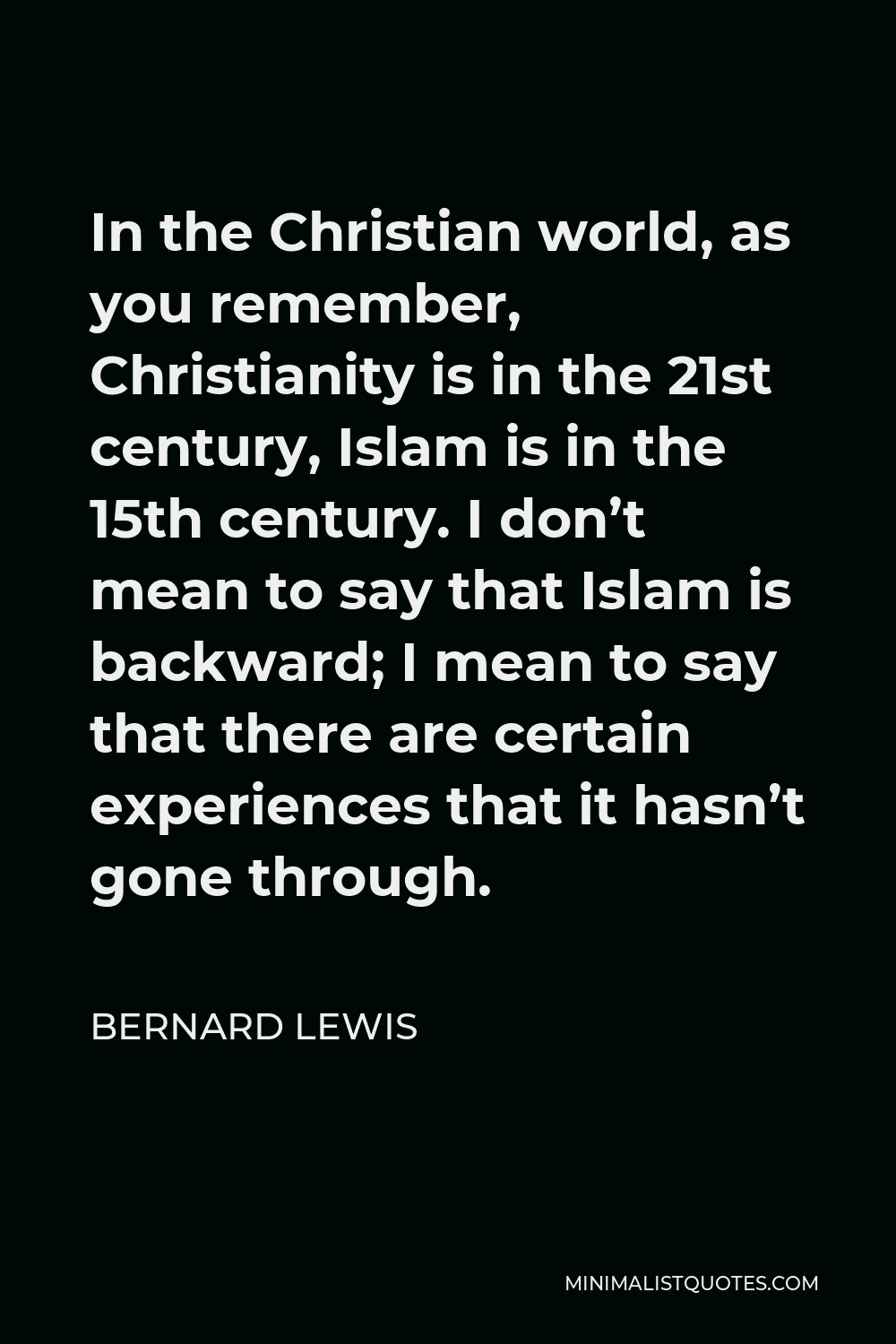
In the Christian world, as you remember, Christianity is in the 21st century, Islam is in the 15th century. I don’t mean to say that Islam is backward; I mean to say that there are certain experiences that it hasn’t gone through.
BERNARD LEWIS -





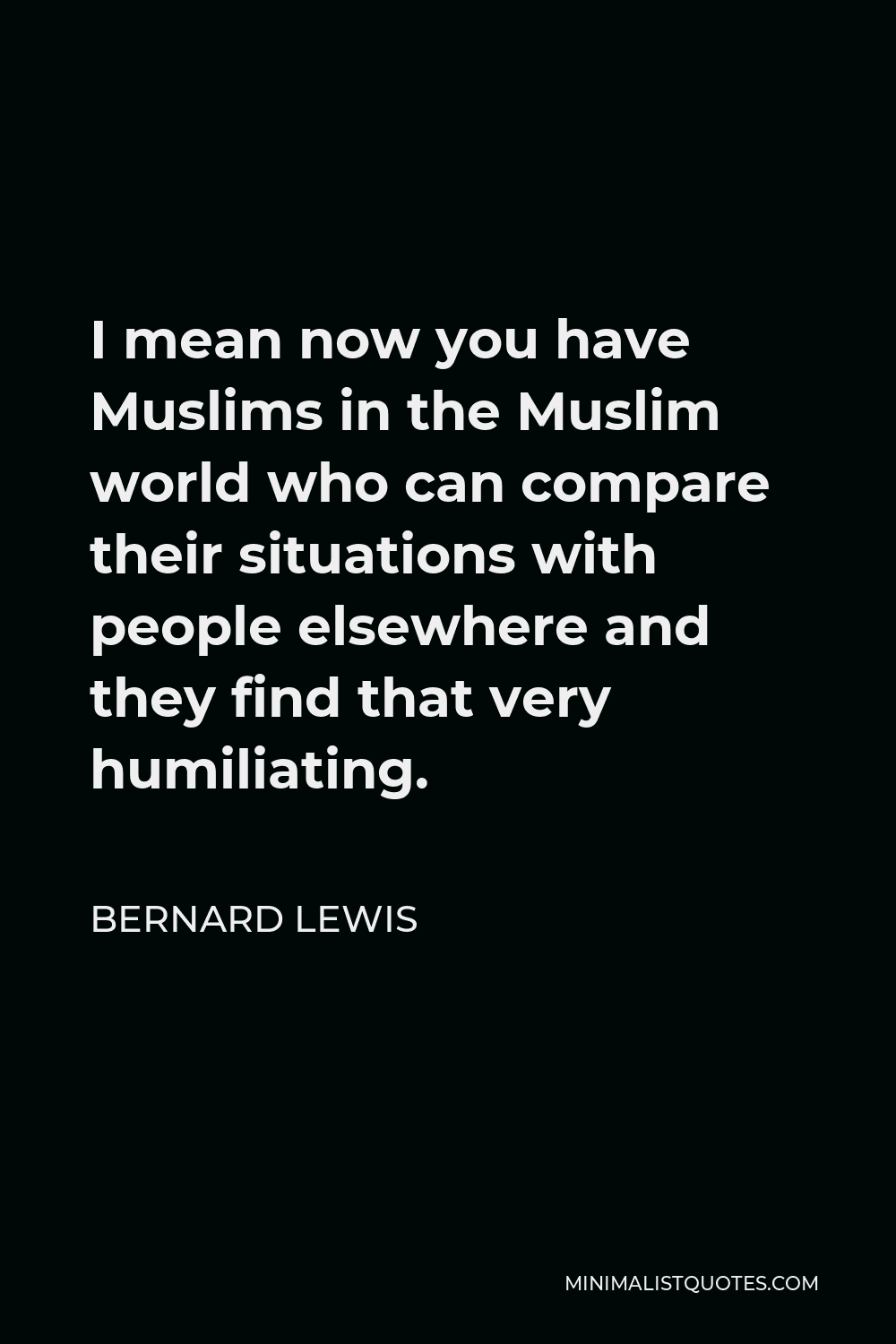
I mean now you have Muslims in the Muslim world who can compare their situations with people elsewhere and they find that very humiliating.
BERNARD LEWIS -





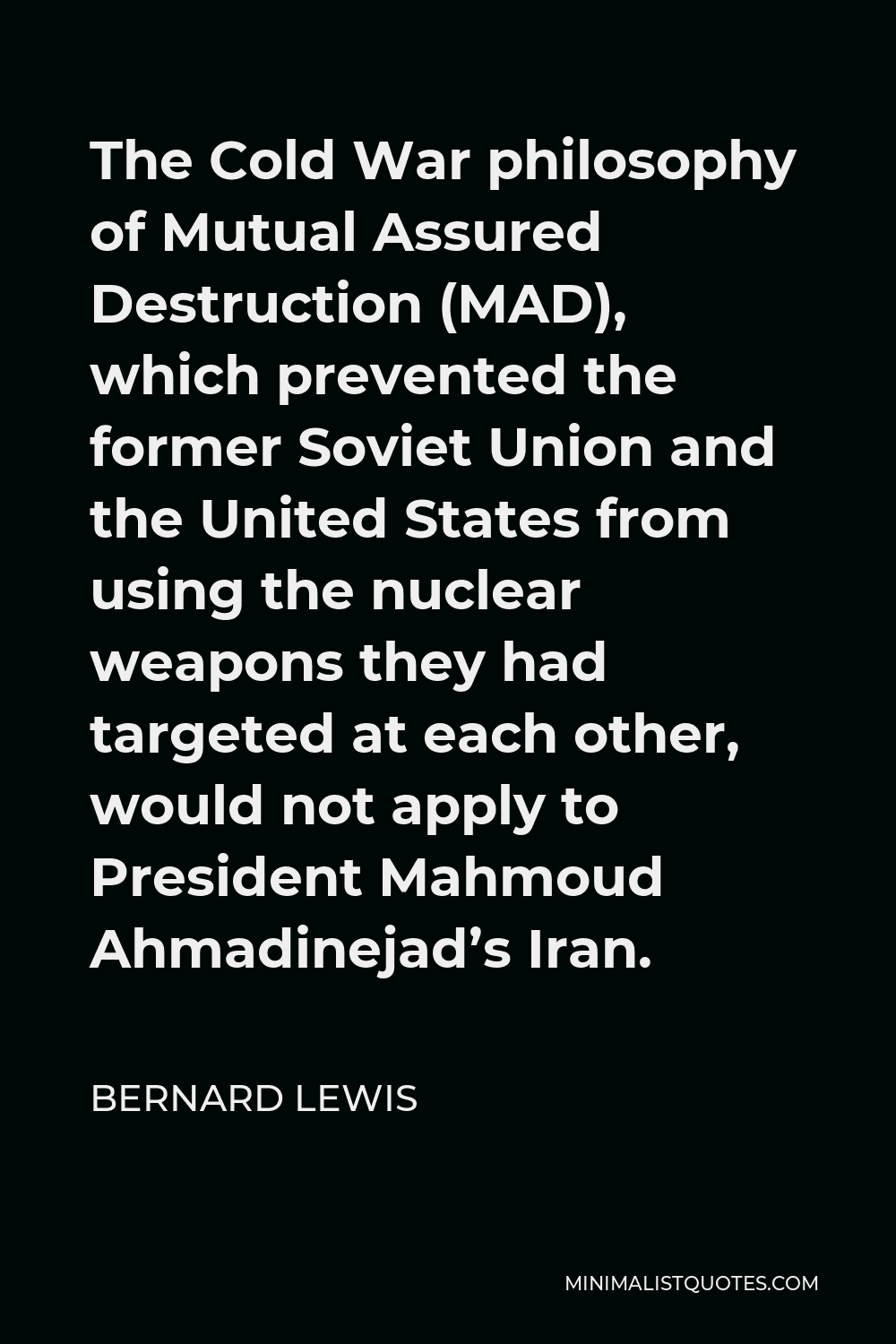
The Cold War philosophy of Mutual Assured Destruction (MAD), which prevented the former Soviet Union and the United States from using the nuclear weapons they had targeted at each other, would not apply to President Mahmoud Ahmadinejad’s Iran.
BERNARD LEWIS -





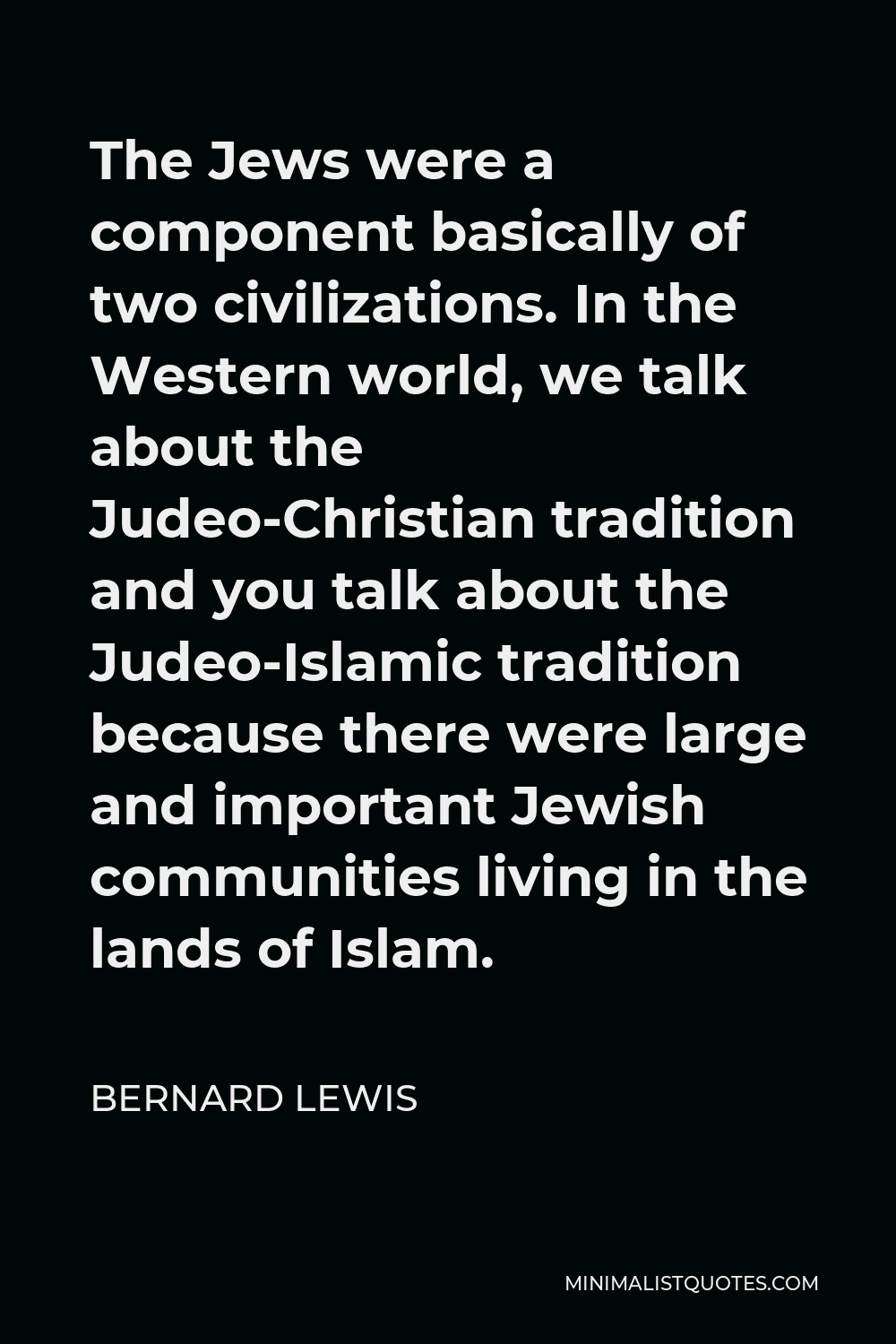
The Jews were a component basically of two civilizations. In the Western world, we talk about the Judeo-Christian tradition and you talk about the Judeo-Islamic tradition because there were large and important Jewish communities living in the lands of Islam.
BERNARD LEWIS -





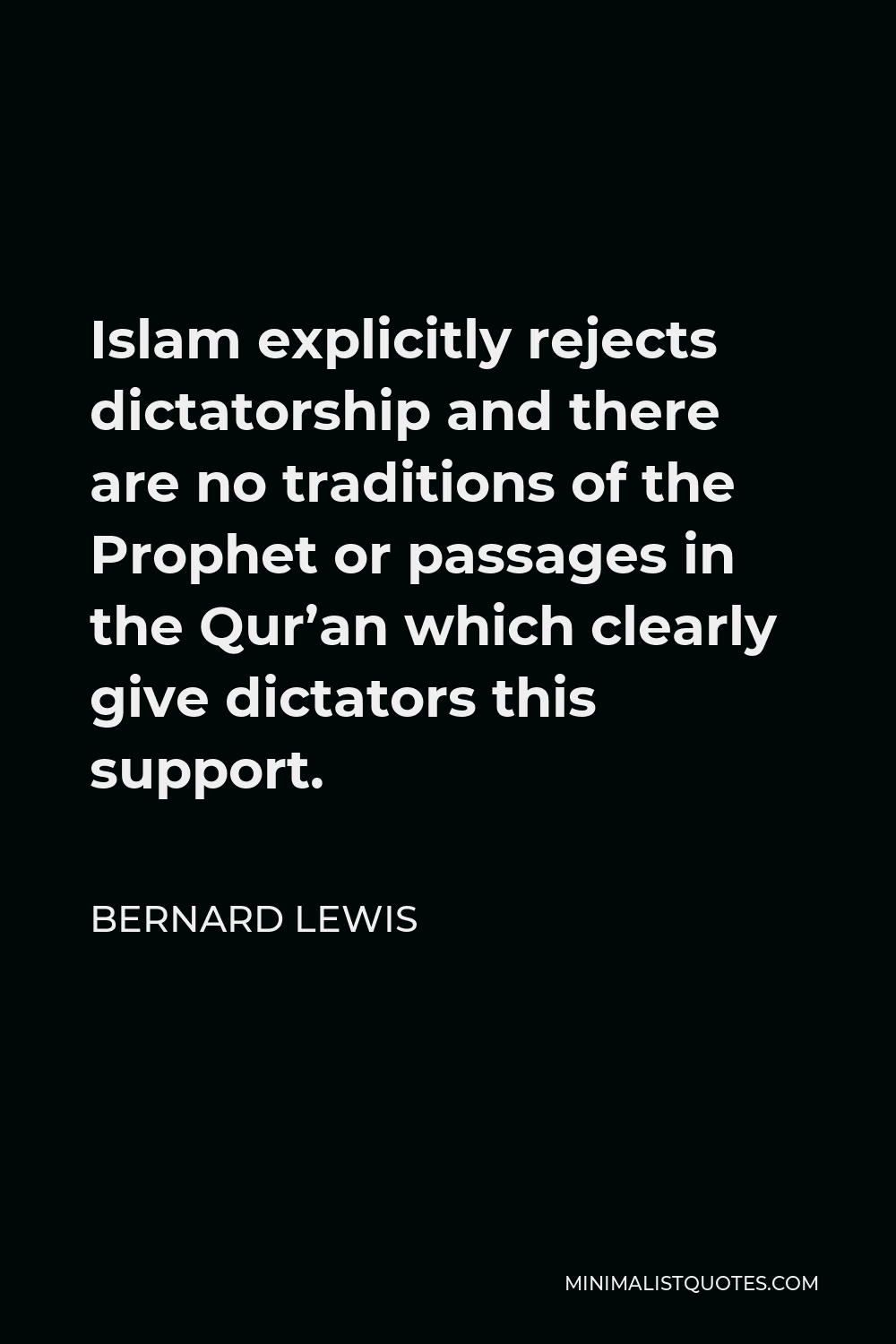
Islam explicitly rejects dictatorship and there are no traditions of the Prophet or passages in the Qur’an which clearly give dictators this support.
BERNARD LEWIS -





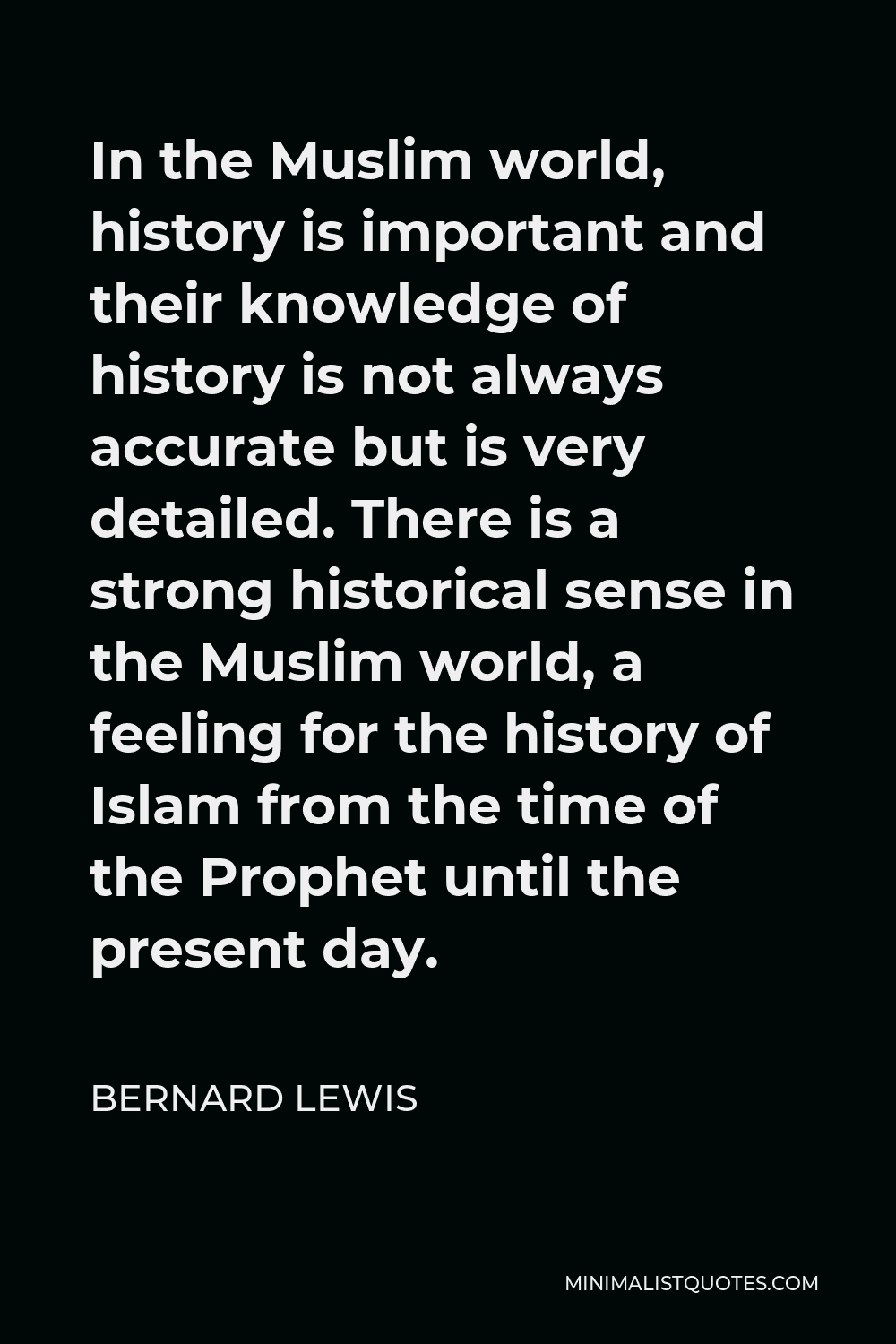
In the Muslim world, history is important and their knowledge of history is not always accurate but is very detailed. There is a strong historical sense in the Muslim world, a feeling for the history of Islam from the time of the Prophet until the present day.
BERNARD LEWIS -





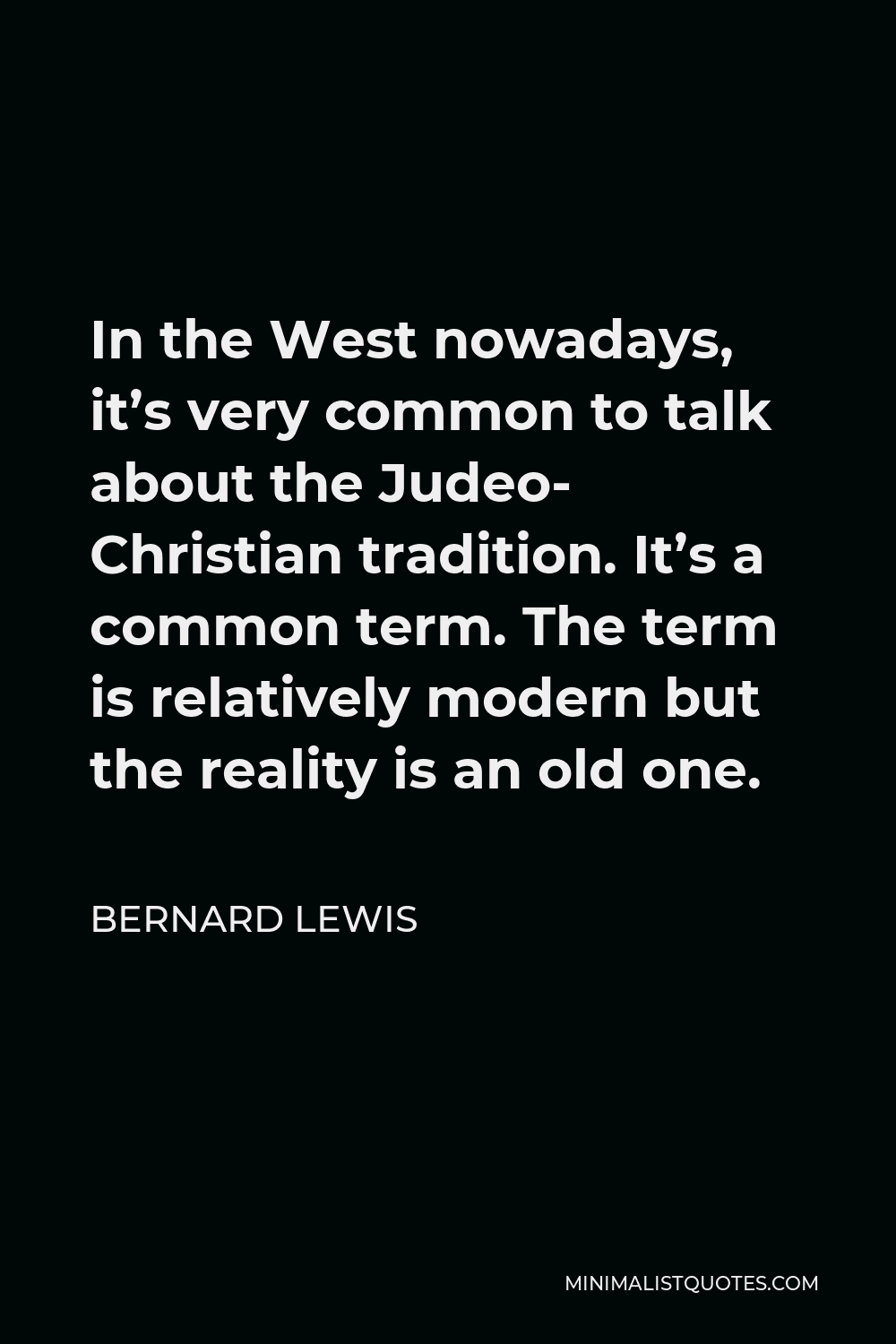
In the West nowadays, it’s very common to talk about the Judeo- Christian tradition. It’s a common term. The term is relatively modern but the reality is an old one.
BERNARD LEWIS -





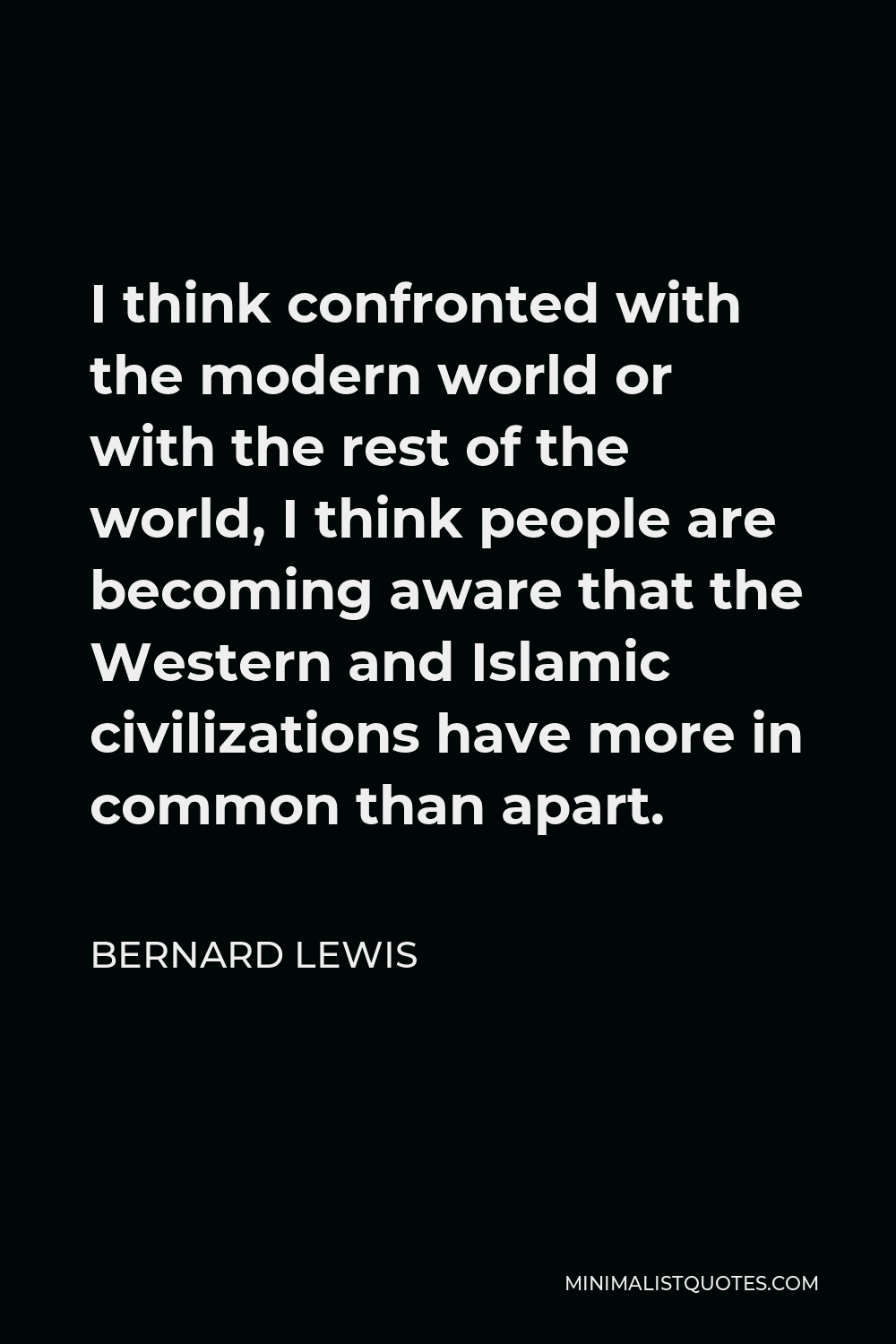
I think confronted with the modern world or with the rest of the world, I think people are becoming aware that the Western and Islamic civilizations have more in common than apart.
BERNARD LEWIS




